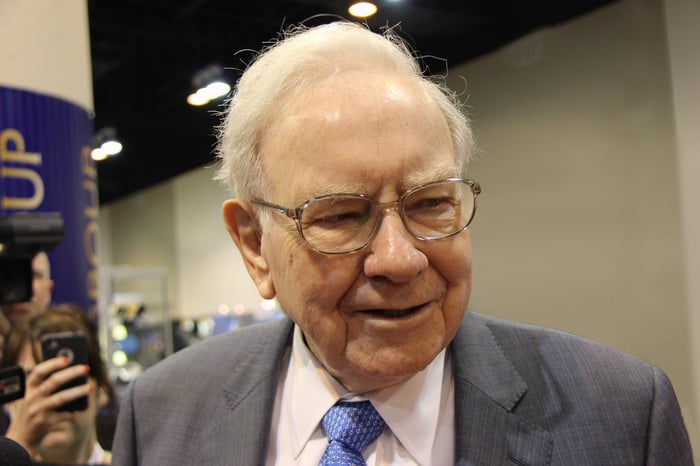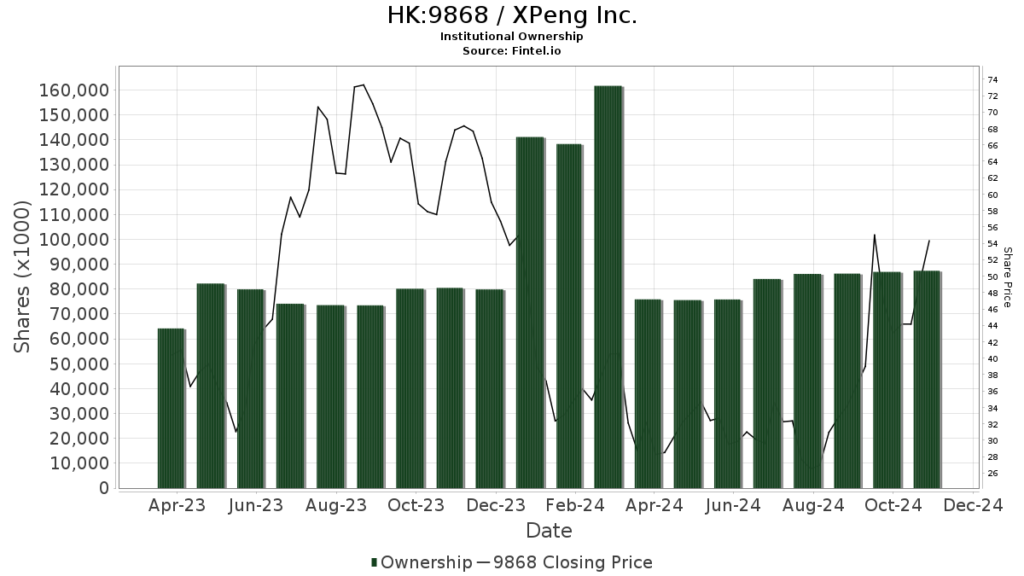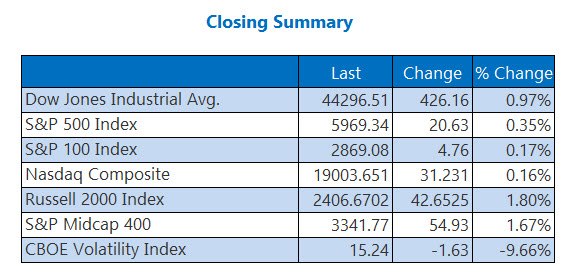Roughly three decades ago, the internet’s seismic impact transformed the growth trajectory of corporate America forever. The ease with which businesses transcended their physical boundaries through a mere click set off a chain reaction, propelling American businesses to new heights.
Yet, since the mid-1990s, Wall Street has been yearning for the next breakthrough trend to match the monumental impact of the internet. Despite numerous emerging technologies and trends in the interim, none have resonated as profoundly as the internet did…until now.

Image source: Getty Images.
The advent of artificial intelligence (AI) has stirred excitement among professional and everyday investors alike, and rightfully so. The potential for AI-powered software and systems to enhance their capabilities autonomously, even acquiring new skills sans human intervention, renders this technology indispensable across various sectors worldwide.
One of the most staggering estimates of AI’s potential impact can be found in “Sizing the Prize,” a report by PwC. Predicting a colossal $15.7 trillion boost to the global economy by 2030 solely from the AI revolution, PwC’s projections underscore the transformative power of artificial intelligence.
While the broader outlook on AI from Wall Street analysts and investors remains overwhelmingly bullish, a notable lack of conviction is palpable in the firms spearheading this groundbreaking revolution.
A Bountiful Horizon for Nvidia, Broadcom, and AMD
A cursory glance at the stock performance of Wall Street’s premier AI companies reveals no signs of struggle. Nvidia (NASDAQ: NVDA) has amassed over $3 trillion in market cap since the onset of 2023, with Broadcom (NASDAQ: AVGO) and Advanced Micro Devices (NASDAQ: AMD) achieving respective gains of 216% and 141% in a span of 21 months and counting, propelled by the AI wave.
Nvidia’s hardware has been a pivotal force behind this surge. Its GPUs, notably the H100 (dubbed “Hopper”), serve as the bedrock powering instantaneous decision-making in AI-accelerated data centers. The overwhelming demand for the H100 has afforded Nvidia the luxury of imposing a 100%-300% pricing premium on its chips compared to competitors, translating to a significant uptick in the company’s adjusted gross margin.
Although Advanced Micro Devices entered the AI arena later than Nvidia, its budget-friendly MI300X AI GPUs have found a receptive market. Given Nvidia’s chip shortages, established firms like AMD are well-positioned to attract AI GPU orders away from the former.
Recently, AMD unveiled its next-gen AI GPU, the Instinct MI325X, set to rival Nvidia’s upcoming Blackwell GPU architecture. Production of AMD’s new chip commences later this year, potentially leveling the playing field against Blackwell.
On another front, Broadcom has emerged as a preferred choice for businesses seeking AI networking solutions. While Broadcom’s repertoire extends beyond AI to encompass wireless chips and smartphone accessories, its Jericho3-AI fabric has been instrumental in reducing tail latency and optimizing the computational prowess of AI GPUs in high-compute data centers, driving much of the company’s current revenue growth.
Despite appearances of a seamless upward trajectory for these companies, a closer examination of their insider transactions paints a different picture.

Image source: Getty Images.
The Conviction Conundrum: Plaguing Wall Street’s Premier AI Stocks
Statements from Nvidia’s CEO Jensen Huang, Broadcom’s CEO Hock Tan, and AMD’s CEO Lisa Su, alongside the robust demand for AI solutions reflected in their companies’ double-digit growth rates, indicate a thriving landscape for AI innovations. However, the actions of these executives and other insiders within Wall Street’s leading AI firms subtly hint at a pronounced conviction disparity.
When insiders of publicly traded companies—be it board members or high-ranking executives—partake in selling or purchasing their company’s shares, stringent disclosure regulations mandate transparency in their actions.
Insider Trading Reveals a Stark Picture
Company insiders at Nvidia, Broadcom, and AMD have been making headlines not for what they are buying, but for what they are selling. The numbers are in, and they tell a lopsided tale of executive actions that speak volumes.
An Inside Look at Insider Activity
Over the trailing 12 months, insider sales have dominated the scene at these tech giants:
- Nvidia: 83 insider sales (25 from Jensen Huang) and 0 insider purchases
- Broadcom: 32 insider sales (eight from Hock Tan) and 0 insider purchases
- AMD: 23 insider sales (eight from Lisu Su) and 0 insider purchases
Collectively, a staggering 138 insider sales have taken place without a single insider purchasing on the open market. This one-sided trend raises eyebrows and market concerns.
Actions Speak Louder Than Words
While insiders may have various reasons to sell their stock, the absence of buying activity paints a compelling narrative. It has been over a year since the last insider buy at Broadcom, nearly four years at Nvidia, and well over five years at AMD. The message is crystal clear – lack of conviction does little to instill confidence in potential investors.
If top-level executives lack belief in their own companies by refraining from investing their capital, why should the average investor bet big on technology that is yet to prove its worth?
Seizing a Lucrative Opportunity
For those who feel they may have missed out on investing in high-growth stocks, there’s a glimmer of hope. Occasionally, expert analysts issue “Double Down” stock recommendations for companies on the cusp of success. These rare opportunities can yield remarkable returns:
- Amazon: A $1,000 investment in 2010 would have grown to $21,285!
- Apple: Investing $1,000 in 2008 would have yielded $44,456!
- Netflix: A $1,000 investment in 2004 would now be $411,959!
Currently, new “Double Down” alerts are being issued for three promising companies, marking a potentially once-in-a-lifetime opportunity.
See 3 “Double Down” stocks »
*Stock Advisor returns as of October 14, 2024




